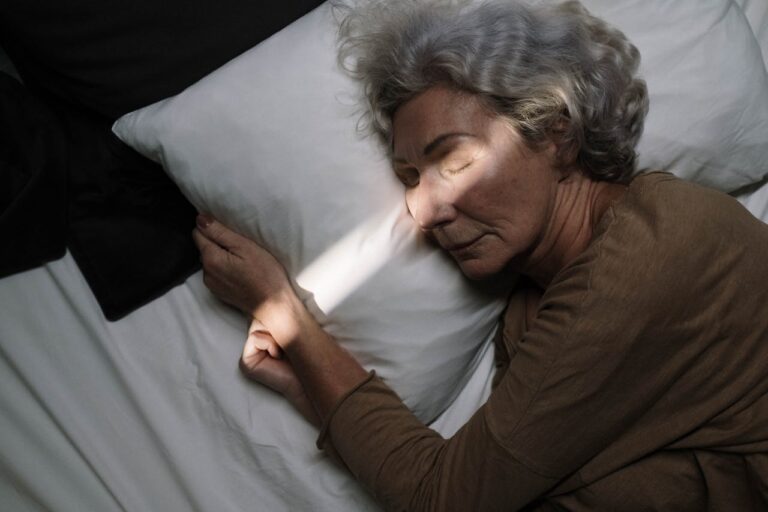
Safe and Healthy Sleep Tips for Seniors
Sleep is a cornerstone of good health, particularly for seniors. Quality sleep contributes significantly to physical well-being, cognitive function, and emotional balance. However, achieving healthy sleep can become increasingly challenging as we age. This comprehensive guide aims to provide valuable, actionable tips for seniors and caregivers to foster better sleep, enhancing overall quality of life.
Understanding Seniors' Unique Sleep Challenges
Changes in Sleep Patterns with Age
As we age, our sleep architecture—the structure and pattern of sleep stages—undergoes significant changes. Seniors often experience a decrease in deep sleep (slow-wave sleep) and REM sleep, leading to lighter, more fragmented sleep. Additionally, the internal body clock or circadian rhythm may shift, causing earlier bedtimes and wake times.
Common Sleep Disorders Among Seniors
Several sleep disorders are prevalent among seniors, including:
- Insomnia: Difficulty falling or staying asleep.
- Sleep Apnea: Interrupted breathing during sleep, leading to poor sleep quality.
- Restless Legs Syndrome (RLS): An uncontrollable urge to move the legs, often accompanied by uncomfortable sensations.
- Periodic Limb Movement Disorder (PLMD): Repetitive cramping or jerking of the legs during sleep.
Understanding these challenges is the first step toward achieving better sleep health.
Creating a Sleep-Friendly Environment
Tips for Optimizing the Bedroom for Better Sleep
Creating a conducive sleep environment is essential for promoting restful sleep:
- Comfortable Mattress and Pillows: Invest in a mattress and pillows that offer adequate support and comfort.
- Ideal Temperature: Keep the bedroom cool, typically between 60-67°F, to support optimal sleep conditions.
- Darkness and Quiet: Use blackout curtains and white noise machines to minimize disruptions.
- Declutter and Personalize: Ensure the sleeping area is tidy and personalized to create a calming atmosphere.
Healthy Sleep Habits for Seniors
Establishing a Regular Sleep Schedule
Consistency is key to regulating the body’s internal clock. Encourage seniors to:
- Maintain a Fixed Sleep and Wake Time: Stick to a consistent schedule, even on weekends.
- Develop a Pre-Sleep Routine: Engage in relaxing activities before bed, such as reading or listening to soothing music.
The Impact of Diet and Exercise on Sleep Quality
Diet and exercise play pivotal roles in sleep health:
- Balanced Diet: Avoid heavy meals, caffeine, and alcohol close to bedtime. Opt for light snacks if needed.
- Regular Exercise: Encourage at least 30 minutes of moderate exercise daily, but avoid vigorous workouts close to bedtime.
Sleep Aids and Devices for Seniors
Overview of Safe and Effective Sleep Aids
While medication can be helpful, it is essential to use them under a healthcare provider’s guidance. Non-prescription options include:
- Melatonin Supplements: Helpful for regulating sleep-wake cycles.
- Herbal Teas: Chamomile and valerian root teas can promote relaxation.
Introduction to Technology That Can Improve Sleep for Seniors
Innovative technologies are available to enhance sleep quality:
- Sleep Trackers: Devices like Fitbit or Apple Watch monitor sleep patterns and provide insights.
- Smart Beds: Adjustable beds with features like massage and temperature control.
- White Noise Machines: Devices that produce calming sounds to mask disruptive noises.
Tips for Caregivers
How to Support Seniors in Maintaining Healthy Sleep Habits
Caregivers play a crucial role in promoting better sleep for seniors:
- Monitor Sleep Patterns: Keep a sleep diary to track habits and identify issues.
- Encourage Healthy Routines: Reinforce consistent sleep schedules and pre-sleep rituals.
- Communicate with Healthcare Providers: Discuss any sleep concerns with professionals to address underlying health issues.
Conclusion
Achieving healthy sleep is vital for seniors’ overall health and well-being. By understanding the unique sleep challenges faced by seniors and implementing the tips shared in this guide, both seniors and caregivers can foster better sleep habits. Remember, if sleep issues persist, seeking professional advice is always recommended. Prioritize sleep health to enjoy a more vibrant, energetic, and fulfilling life.
Call to Action: If you found these tips helpful, consider sharing this guide with others who might benefit. For more expert advice and resources, subscribe to our newsletter or visit our website.
Keywords: Senior Sleep Tips, Healthy Sleep for Seniors, Sleep Aids for Elderly